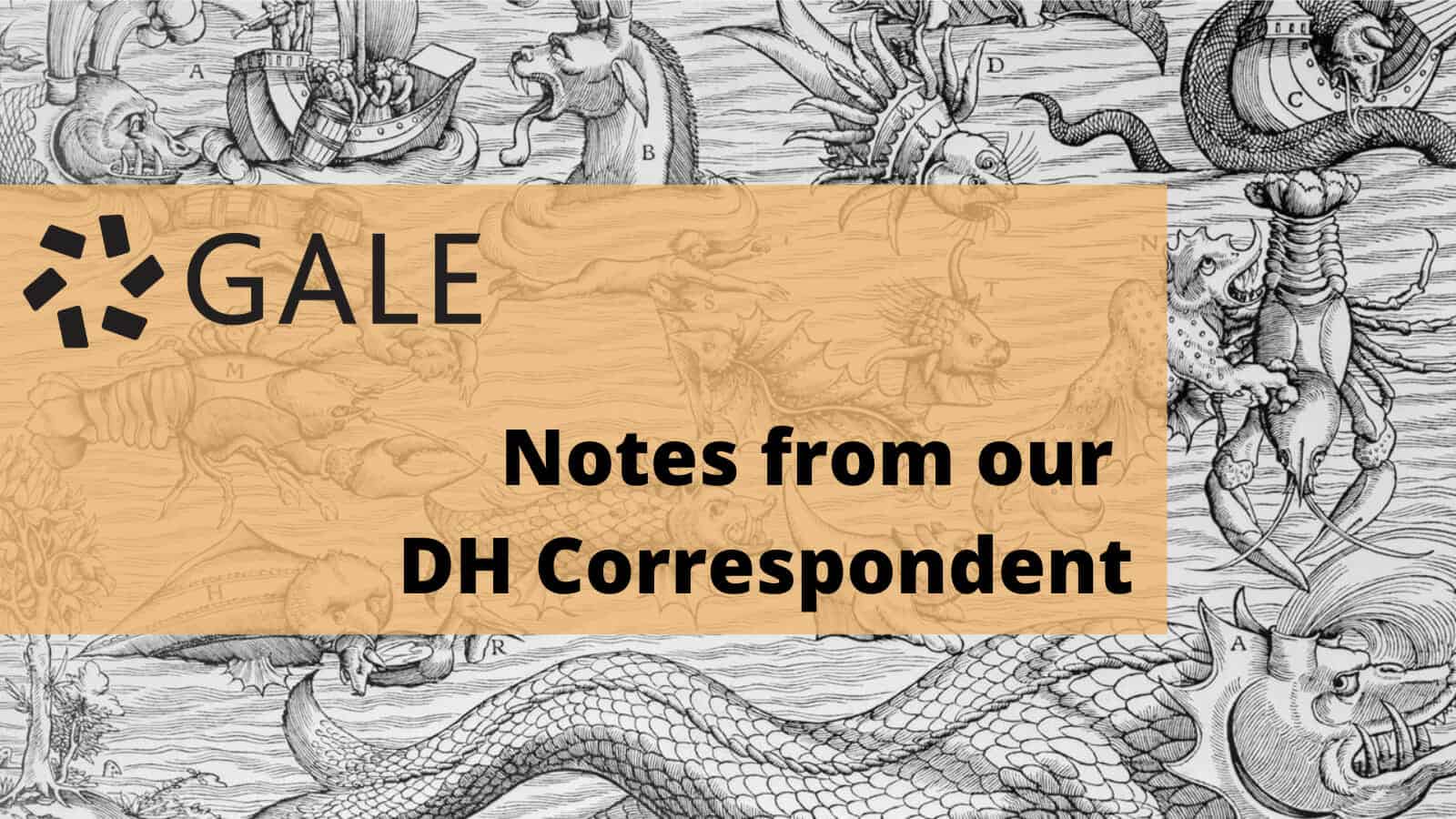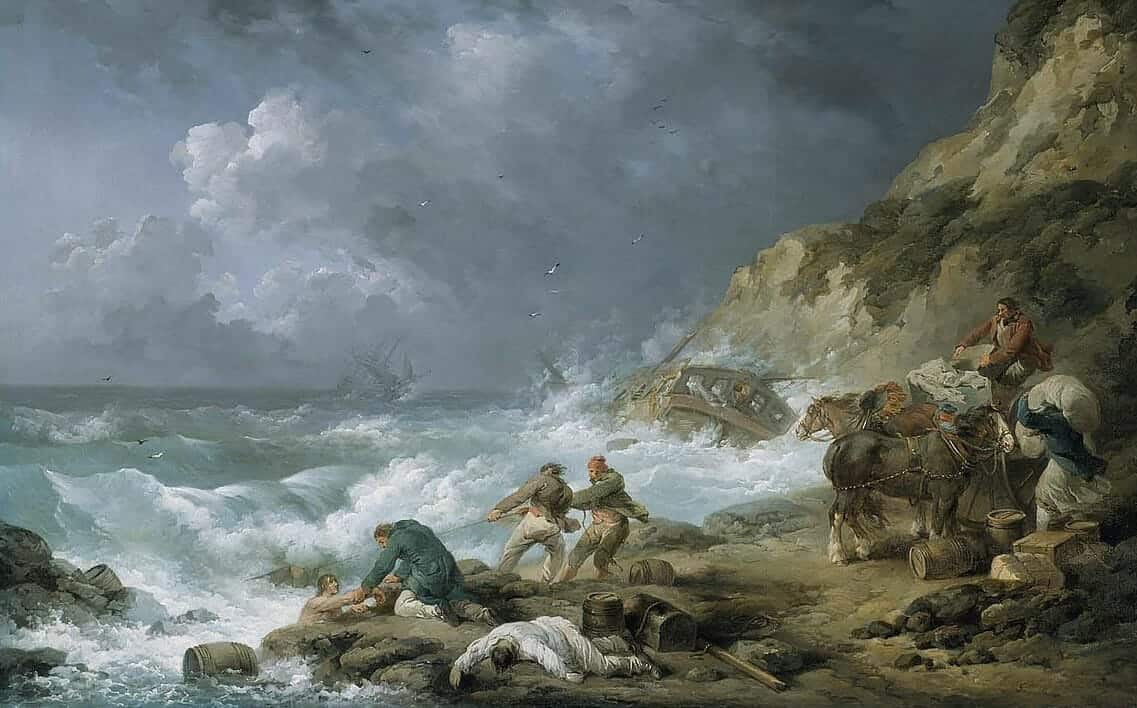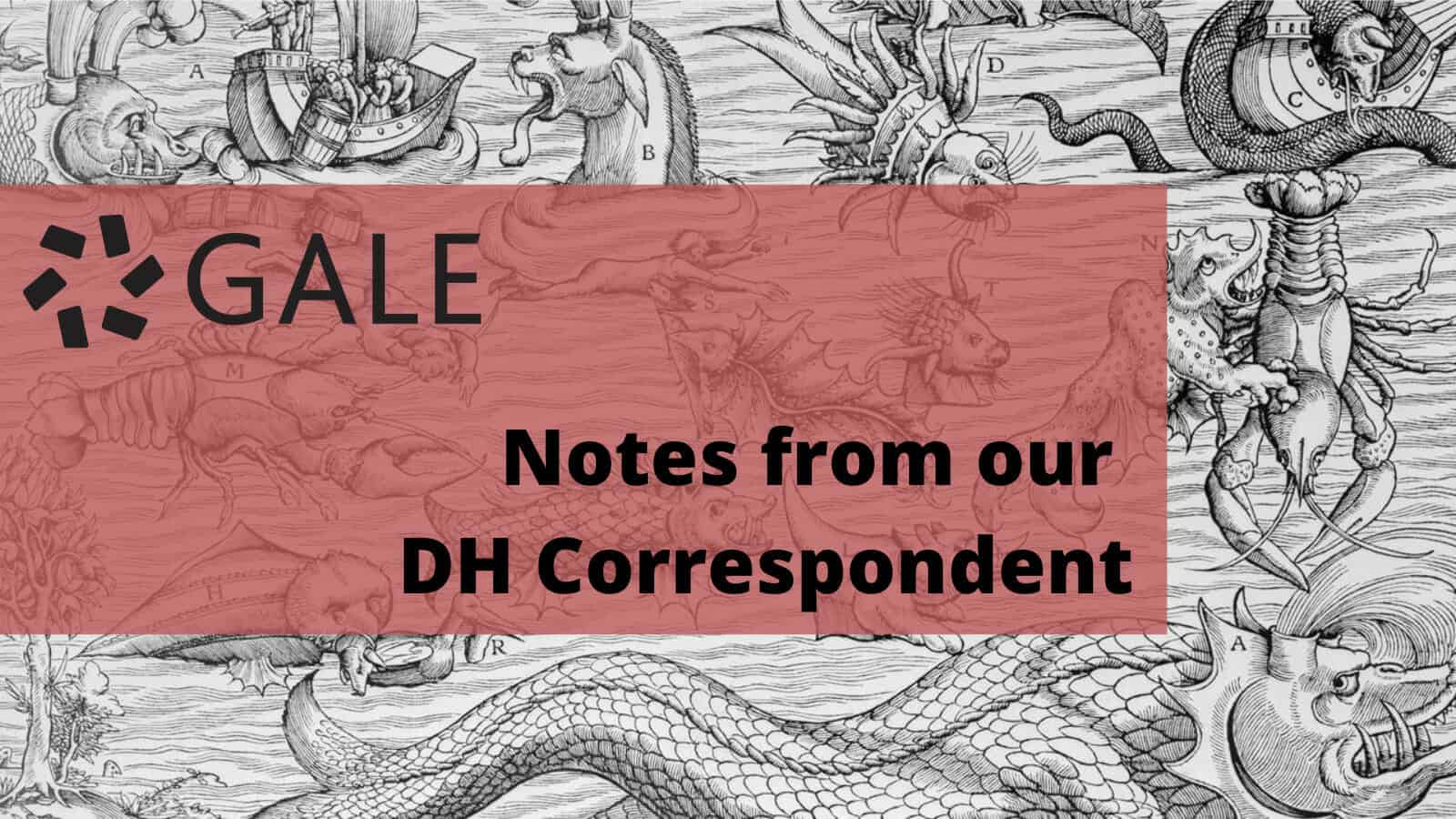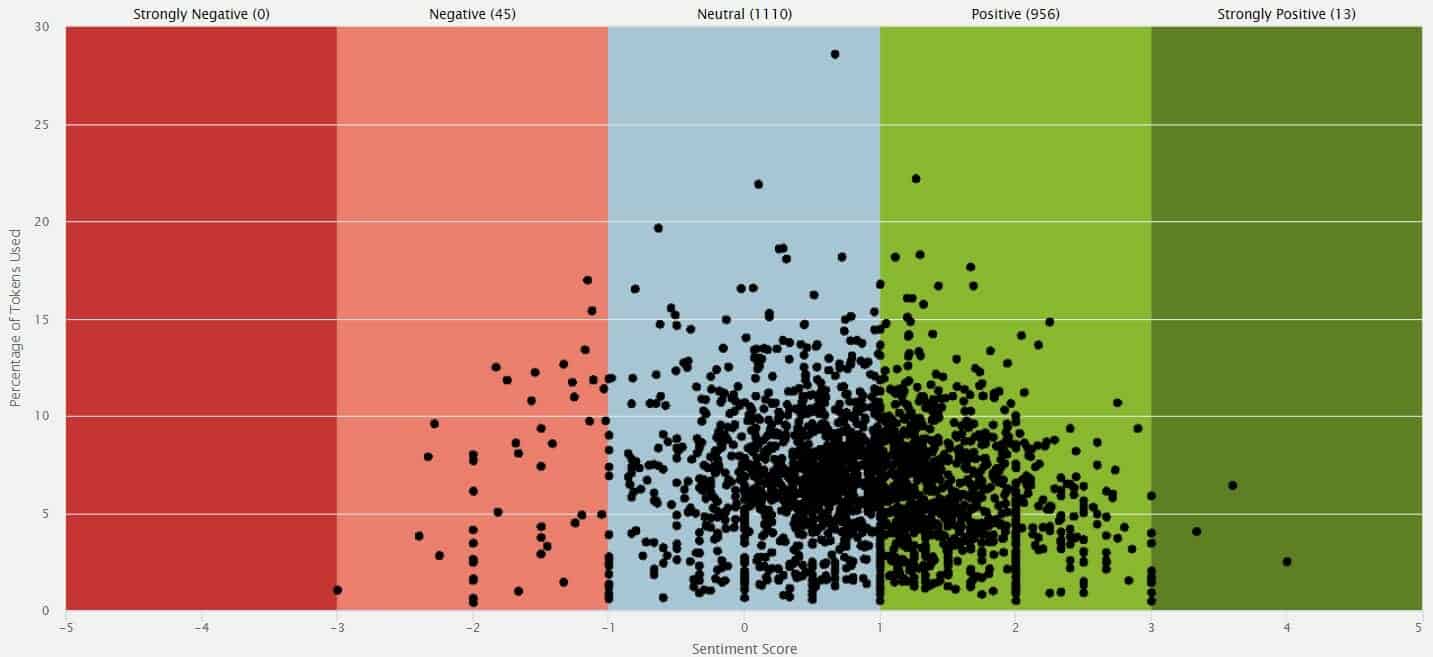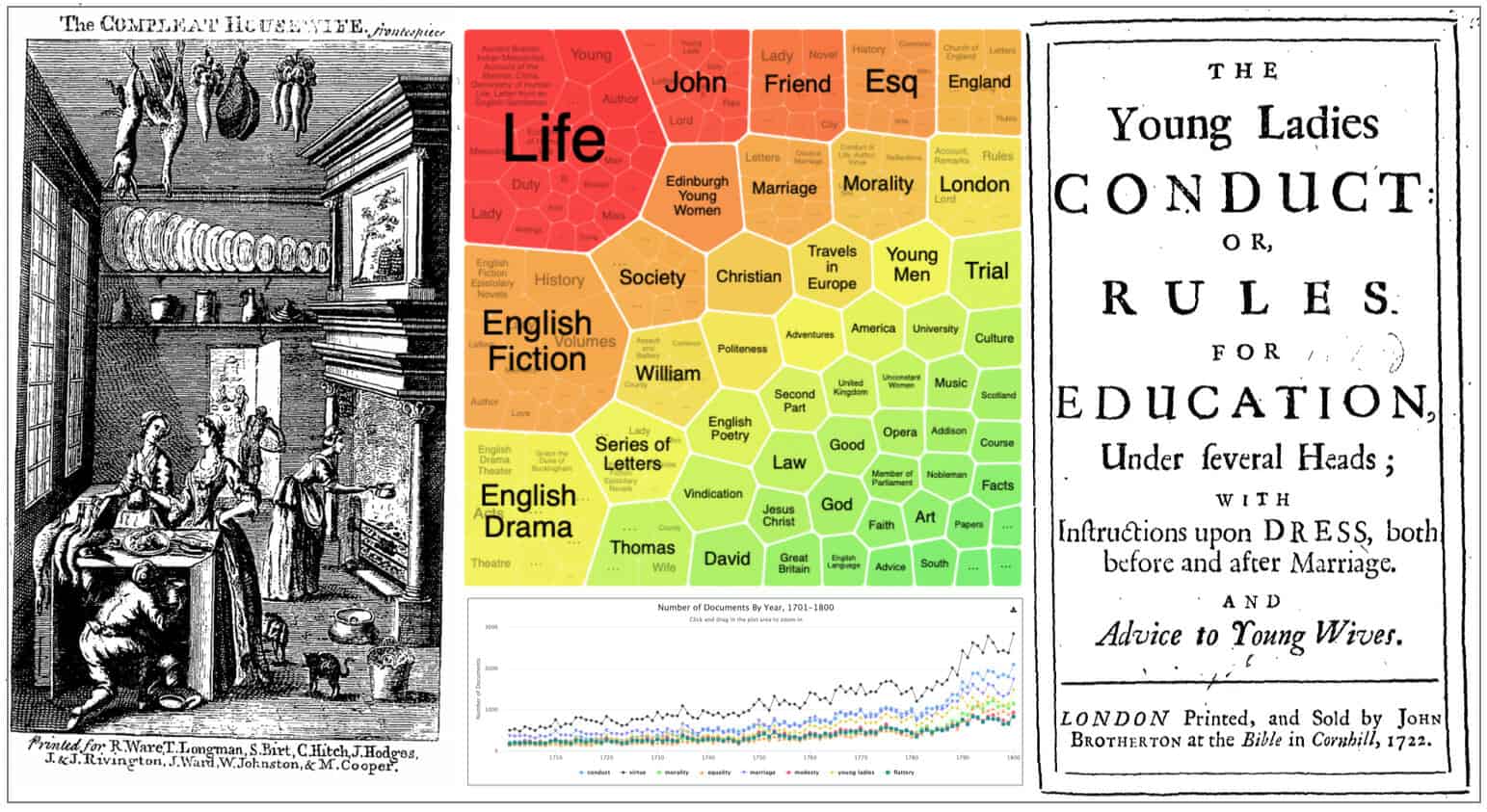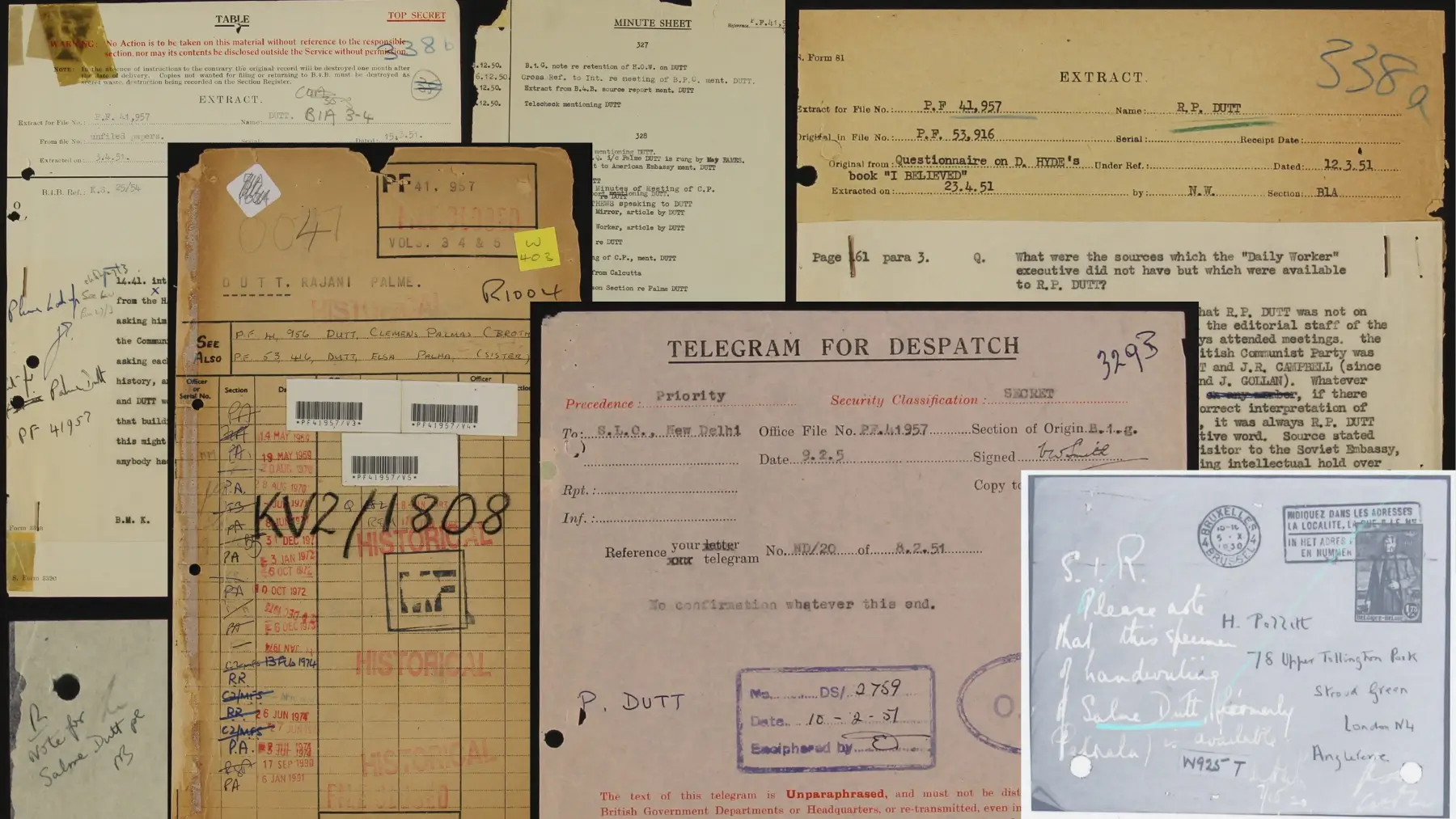│By Sarah Ketchley, Senior Digital Humanities Specialist│
The field of digital scholarship tends to be collaborative, since any given project may involve disciplinary experts, developers, librarians, archivists, and students. Management of workflow and data can be challenging unless there is careful planning from the outset about record-keeping, group working practices, the sharing of information and goals for project sustainability and longer-term archiving. These practical considerations are the same for research projects and for those built in the classroom.
The ability to create Groups was recently added as a feature to the Gale Digital Scholar Lab platform, along with a flexible ‘Notebook’ tool for documenting decisions and outcomes. This blog post will consider how Group spaces can be used to facilitate classroom project-building by students in an undergraduate classroom, using a recent course I taught in the Information School at the University of Washington as a case study. The practicalities of using the Groups/Notebook features were discussed in my previous blog post, including details about how a teacher might go about adding students to new groups within the Lab, then managing classroom workflow via record-keeping in the team’s Notebook.

